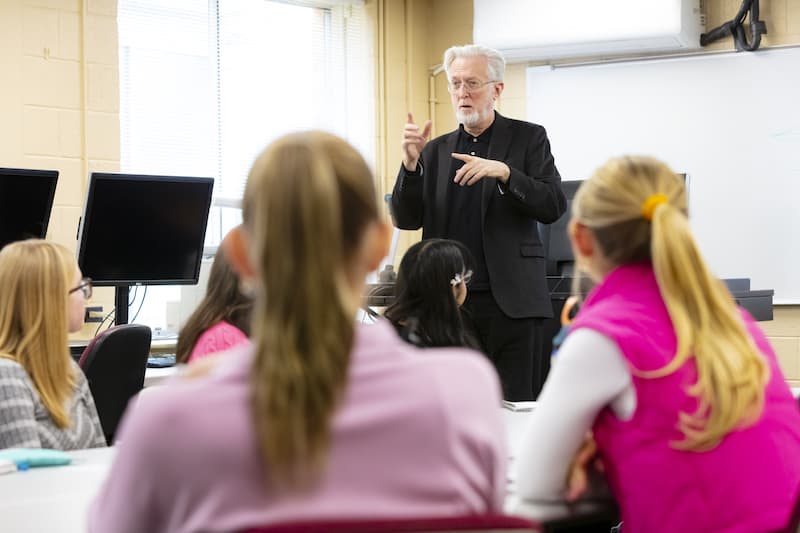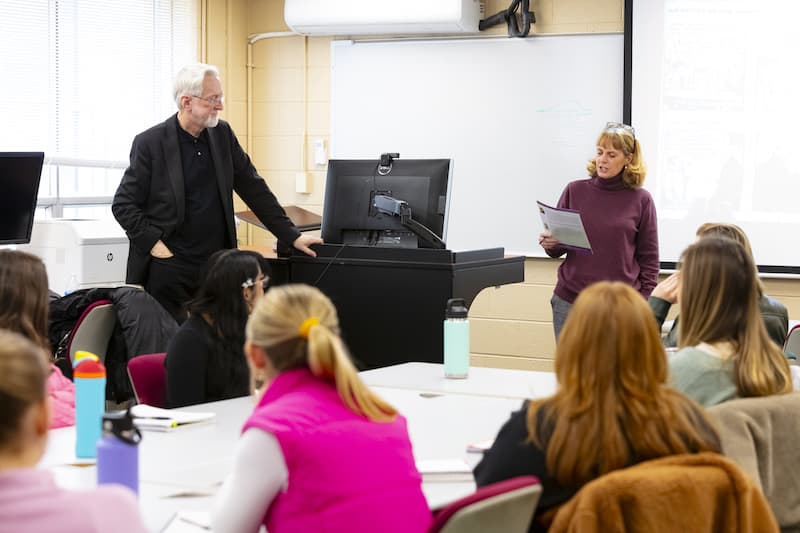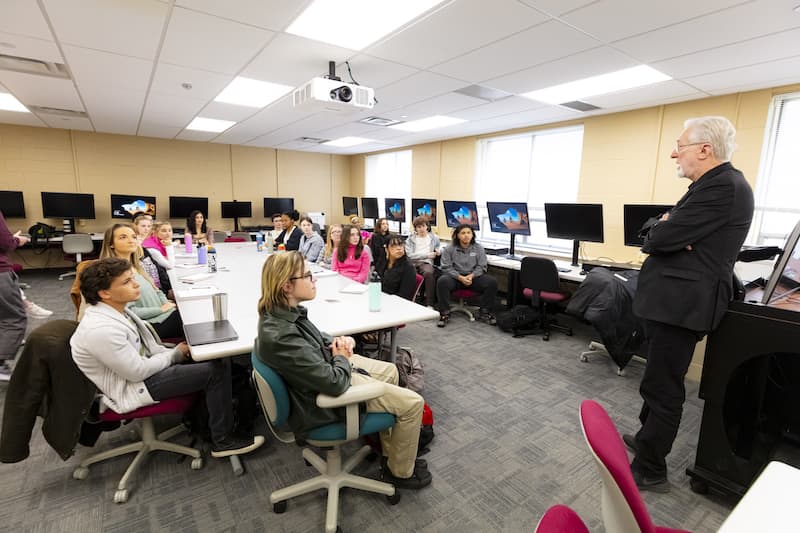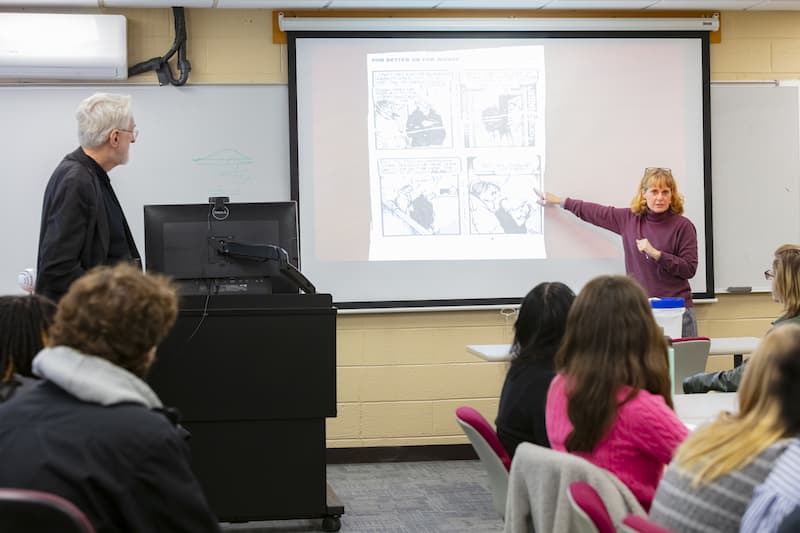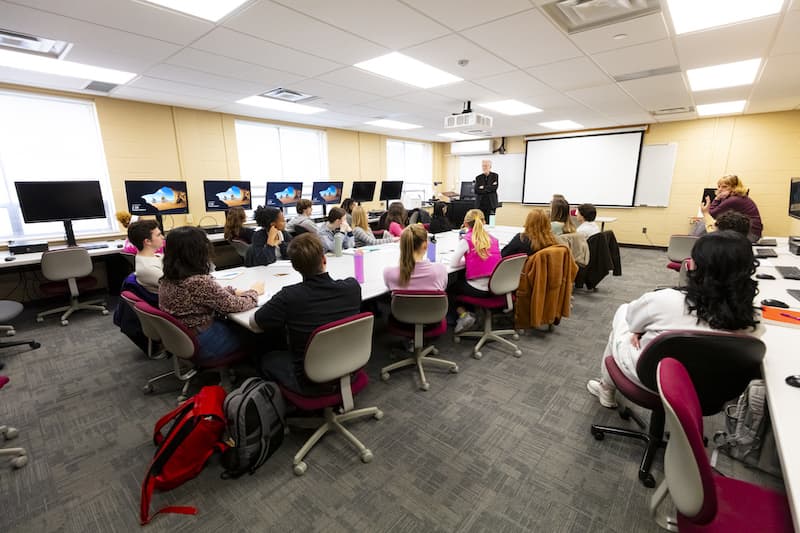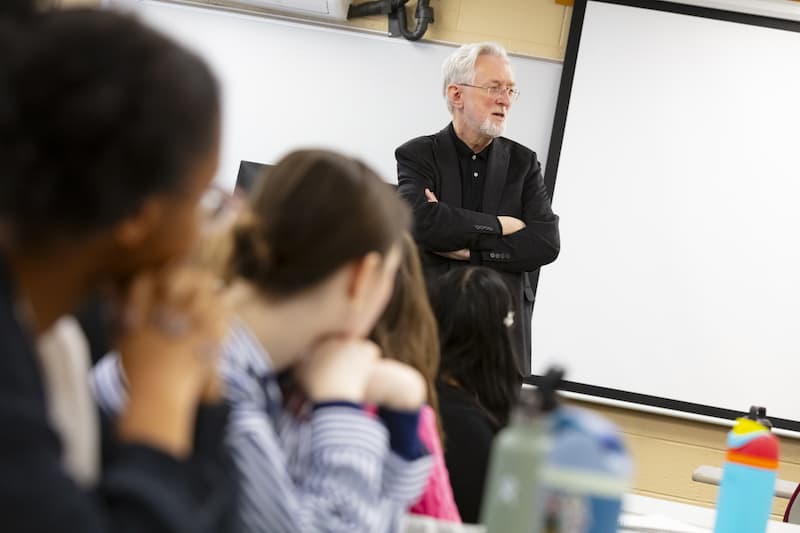The Future of Journalism in Scranton Discussed
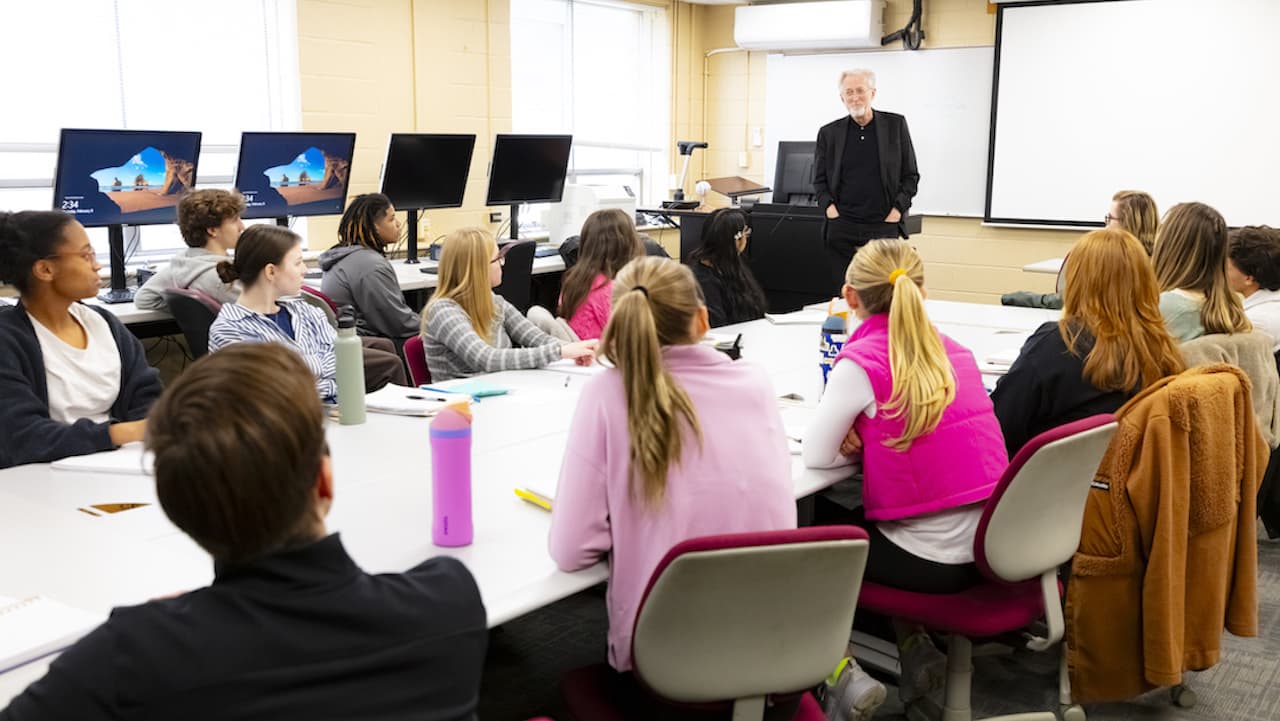
Jeff Jarvis, Tow Professor of Journalism Innovation, director of the Tow-Knight Center for Entrepreneurial Journalism at the City University of New York, and creator and founding editor of Entertainment Weekly discussed “Rethinking Local Journalism in Scranton” at The University of Scranton’s Schemel Forum on Feb. 9. The luncheon seminar was sponsored by Munley Law.
Jarvis centered his discussion on the Scranton Times-Tribune, which was locally owned for nearly 130 years until its sale in August of 2023 to MediaNews Group, a subsidiary of hedge fund Alden Global Capital.
Confronted with the possible loss of a valuable source of local information, Jarvis explained how Scranton, like many other communities facing similar situations, has fallen victim to a form of journalism that sees itself as a producer with content as its commodity. Instead, Jarvis argued that the true purpose of journalism should be to act as a service to the people, providing information that makes the lives of citizens and communities better.
To cope with the sale of the Times-Tribune, Jarvis encouraged the reinvention of news coverage in Scranton. First, Jarvis suggested the construction of an independent news ecosystem in the community. Especially after speaking with event attendees who previously composed letters to the editor, Jarvis coaxed those same individuals to start blogs to ensure that the local news interests of Scranton citizens continue to find representation.
Jarvis also explained that the changing journalism in Scranton, and across the nation, must pursue a similar goal of citizen representation. Not only does this require reporters to enter communities with an open mind rather than a preconceived narrative, but it also requires news companies to listen to citizens and report on news that the community needs or wants to see. With these improved practices, Jarvis highlighted that news could repair trust with communities, as around one-third of people worldwide reported that they actively avoid news due to a lack of trust in media.
Jarvis also noted that focusing on journalism as a service rather than the producer of a commodity would allow for the amplification of diverse voices that may have previously lacked representation.
Jarvis continued, highlighting the many ways for journalism to remain financially capable, discussing options of memberships, patronage, philanthropy, commerce and government funding. Yet, he recognized that, for many, spending money on subscriptions is not possible, which leaves individuals with access only to propaganda-riddled content that lacks both quality and artistry. Jarvis also warned against mixing government with news media as news should likely remain independent of the politicians on which it reports. However, for communities like Scranton, now without a locally-owned news outlet, Jarvis did acknowledge that local government would be tasked with the responsibility of “picking up the slack.”
Ultimately, Jarvis seemed to summarize his most critical point in a single statement: “the storyteller is a position of power.” Even as journalism begins to change as time progresses and the industry evolves, the power of the position remains the same.
Jarvis ended his presentation by challenging the journalists and community members in attendance to break the norms of traditional journalism and reinvent journalism in a way that best serves the public.
Jarvis met with University students in the Media Writing course taught by Kim Pavlick, Ph.D., professor of media and communication, prior to his luncheon presentation.



